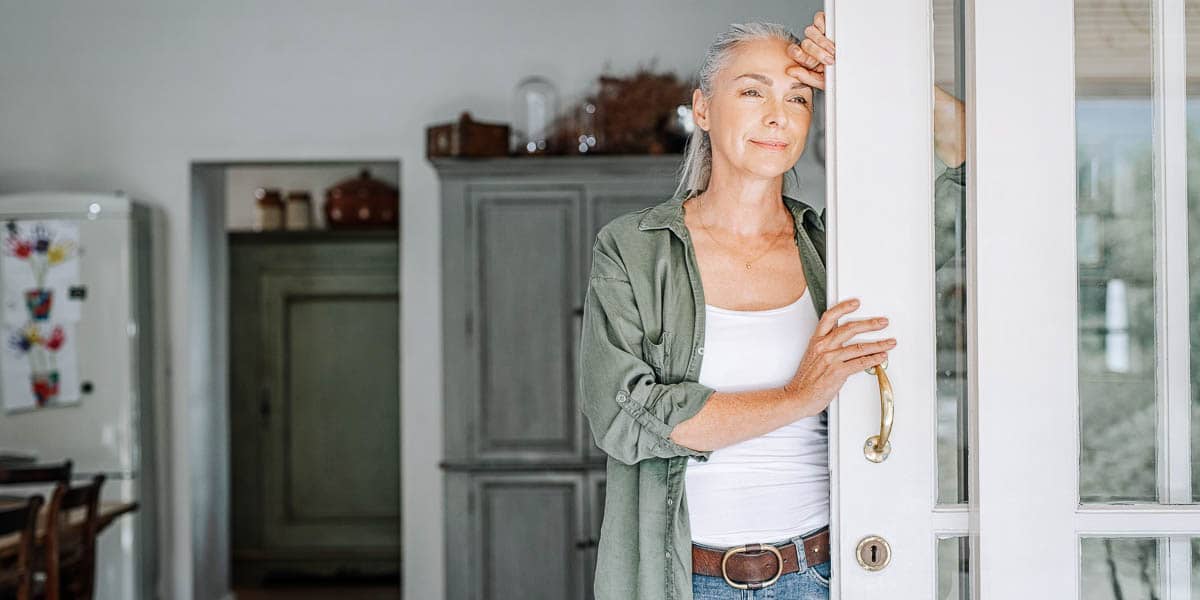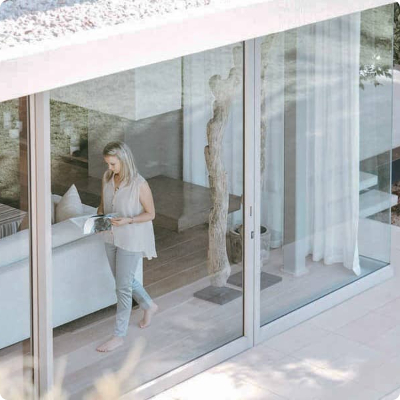Is It Better to Rent or Buy Your Home during and after Divorce?

In this article:
- Moving out of the marital home
- Should you rent or buy after a divorce?
- What about the house I shared with my ex?
- Pros and cons of renting a home during your divorce
- Pros and cons of buying a home during your divorce
- Tips for buying a home after divorce
After the divorce, where will you live? This is one of the (many) important decisions you'll need to make in your divorce process. If you plan to move out of the marital home, you could choose to rent or buy a home. In this article, we outline the pros and cons of renting versus buying a home after divorce.
Moving out of the marital home during divorce
So, you're moving out. To rent or to buy? Most people will do one or the other. Before the divorce has been filed, it's highly recommended that you research your options to gain an understanding of which move would be right for you. Consider your finances, the housing market, and rental rates in your chosen area. If you have children and plan to co-parent, consider where your ex will live to minimize transport woes. Keep in mind that it typically takes 45 to 90 days for a divorce to finalize after the paperwork has been filed. This gives you some time to resolve your living situation.
Should you rent or buy a home after a divorce?
While both options have their perks, renting is often the preferable solution. Why? Now that you're single, you may be dealing with a limited income. What's more, any debt or credit limits you have can impact your buying power at this time. And renting is more common than you might think. At the moment, around 36% of American households live in rental homes.
If your marital home has already been sold, you might have enough cash to make a sizable down payment on a new home. This option may appeal to you, especially if you want to establish new roots quickly after divorce. Let's look at two potential scenarios: finding a place to live before your divorce is finalized and finding a place to live after your divorce is finalized.
Before your divorce is finalized
If you decide to move before your divorce is finalized, renting may be the best option. The reason: You likely won't have access to funds that may be available after selling your home. Further, some of your assets may be frozen until after the divorce is complete. Therefore, your buying power could be limited at this time. If you want to buy a new home and have the means to make a down payment before your divorce is finalized, you may need to have your spouse sign a quitclaim deed for the property you want to buy. This document is sometimes needed to make sure the new home you buy isn't considered a marital asset.
After your divorce is finalized
After your divorce has been finalized, the decision to rent or buy is a little less complicated. For example, since you won't be married anymore, there's no need to worry about obtaining a quitclaim deed. Your best option at this point largely depends on your financial situation. You might have enough cash to make a down payment on a new home. Otherwise, renting is an option you could try in increments of 3, 6, or 12 months while saving your money for something else.

Need help understanding your home-related options?
Download Divorce & Your Home, our free three-step home solution with tips and worksheets to help you understand and make the most of your home's equity.
What about the house I shared with my ex?
In most cases, the house you shared with your ex is considered marital property. This means it must be divided during the divorce. If you and your ex have children, a judge may allow one of you to remain in the home until the kids reach a certain age. However, the most common solution is to sell the marital home during or immediately after the divorce. In most cases, this will allow you to obtain 50% of the proceeds.
Pros and cons of renting a home during your divorce
Renting a home during your divorce offers some distinct pros and cons.
Here's a look at the benefits of renting a home during divorce:
- You won't need to pay maintenance costs or taxes on the home.
- A down payment is not required.
- You'll have time to save up for a down payment on a home.
The drawbacks to renting a home include the following:
- Your rental rate could increase every 6 to 12 months.
- You won't be able to build equity in your home.
- Renting is not a permanent solution and therefore offers less stability.
Pros and cons of buying a home during your divorce
Buying a new home during divorce offers some distinct pros and cons, too.
The clear benefits of buying a home include the following:
- Your monthly payments will help you build equity.
- Your purchase could be tax-deductible.
- Owning a home creates a sense of stability you just can't get from renting.
The primary drawbacks to buying a home include the following:
- Home values could go down, reducing the value of your investment.
- Myriad maintenance and upkeep costs may be required.
- It's more difficult to move if you decide you don't like the location.
Tips for buying a home after divorce
Eager to buy a home after your divorce has been finalized? These three tips should help make the process easier.
Tip: Get a real estate agent and a pre-approval letter.
A real estate agent can help you understand your home-buying options based on your wants and needs. A mortgage pre-approval letter from the lender of your choice essentially tells you how much you can afford on a new home. It guides the rest of the home-buying process.
Tip: Have your down payment ready.
To buy a home in the current market, you'll likely need a great credit score and a large down payment. Most lenders require a minimum down payment of 3% to 5% of the home's listing price. That said, the down payment you make can impact the interest rate on your loan. A larger down payment of 20% will allow you to avoid paying for private mortgage insurance.
Tip: Factor in other costs.
Don't forget to account for closing costs in your budgeting. Closing costs encompass everything from inspection costs to attorney fees. Your closing costs could be anywhere from 2% to 5% of the total loan amount. What's more, since you're "starting over," you may find yourself having to invest in costly new appliances (dishwasher, clothes dryer) and furniture to outfit your new home.
We're here and ready to help with your divorce finance needs. You can add expert divorce finance help to any of our low-cost online divorce plans.
.png)



